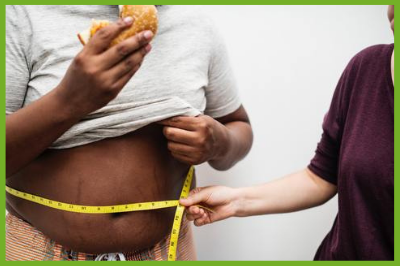
Your sperm cells are just as fit as you are
Share
What was considered a sign of wealth in the old days, is now a threat of diseases. Overweight and obesity are unnecessary fat buildup, which can be measured by the body mass index known as BMI. The purpose of BMI is to measure the total body fat and based on that the possible risk of diseases.[1] Unfortunately, the number of obese men is increasing worldwide.[2] US National Library of Medicine and National Institutes of Health says: “Reduced semen quality is a universal trend in the last few decades due to dramatic changes in the lifestyle of civilized communities around the world“.[3]

There are 7 categories of BMI:
- Underweight (<18,5kg/m2)
- Normal weight (>18,5kg/m2 and <25kg/m2)
- Overweight (>25kg/m2 and <30kg/m2)
- Obese (>30kg/m2)
- Obese class 1 (>30-35 kg/m2)
- Obese class 2 (>35-40 kg/m2)
- Obese class 3 (>40 kg/m2)
The optimal one is the “normal weight” category, where there is the smallest chance for disease risks based on the BMI. Studies have shown that both a low and a high BMI are related with “reduced testicular volume (WHO 1987) and reduced semen quality suggesting impairment of spermatogenesis”[4]
The chances of infertility increased by 10% with every 20 pounds (9 kg) of man's overweight.[5]
Among fertility issues, a high BMI can also cause high blood pressure, high cholesterol, diabetes type 2 and in serious cases cancer. Along with emotional issues such as low self-esteem and overall quality of life.[6]
Infertility is a growing problem nowadays, due to the lifestyle changes over the last decades. One in every 13 couples in the US is having a problem conceiving.[7] Up to 30% of all men can possibly have a problem conceiving and if the female fertility is potentially challenged as well it will make the journey more complicated by another 30%.[8]
If you try to be physically more active, it can be small changes in lifestyle such as riding a bike to work or a walk outside two times a week, which can make a difference in the overall health. Improvement of eating habits makes 75% of the difference in cutting weight whereas exercise is only 25%. It is important to do physical activities while eating healthier to lose fat, otherwise without exercising, you will slow your metabolism and start to lose muscle mass instead of fat.[9]
A smart way of improving the quality of sperm cells is also the right vitamins, which can be taken in a supplement or eaten in food containing them, while still losing weight. You can read more about what food and which vitamins are important for male fertility here.
[1]https://www.ncbi.nlm.nih.gov/pmc/articles/PMC5922227/?fbclid=IwAR2ilw6mbiuxjL5TOKX5YZDxWWPbcYIxtRYxJR5ad-OpG_bKiZrxQeKt2A4#b0420
[2] https://www.ncbi.nlm.nih.gov/pmc/articles/PMC4408383/
[3] https://www.ncbi.nlm.nih.gov/pmc/articles/PMC4408383/ introduction
[4] https://www.ncbi.nlm.nih.gov/pmc/articles/PMC4408383/#CIT0003 3. Jensen TK, Andersson AM, Jørgensen N, Andersen AG, Carlsen E, Petersen JH, Skakkebaek NE. Body mass index in relation to semen quality and reproductive hormones among 1,558 Danish men. Fertil Steril. 2004;82:863–870. [PubMed] [Google Scholar]
[5] https://www.ncbi.nlm.nih.gov/pmc/articles/PMC4408383/#CIT0003 4. Sallmén M, Sandler DP, Hoppin JA, Blair A, Baird DD. Reduced fertility among overweight and obese men. Epidemiology. 2006;17:520–523. [PubMed] [Google Scholar]
[6] https://www.ncbi.nlm.nih.gov/pmc/articles/PMC4408383/#CIT0003
[7] https://www.ncbi.nlm.nih.gov/pmc/articles/PMC4408383/#CIT0003 1. Stephen EH, Chandra A. Declining estimates of infertility in the United States: 1982–2002. Fertil Steril. 2006;86:516–523. [PubMed] [Google Scholar]
[8] https://www.ncbi.nlm.nih.gov/pmc/articles/PMC4408383/#CIT0001
[9] https://www.huffpost.com/entry/exercise-vs-diet-for-weight-loss_n_5207271
